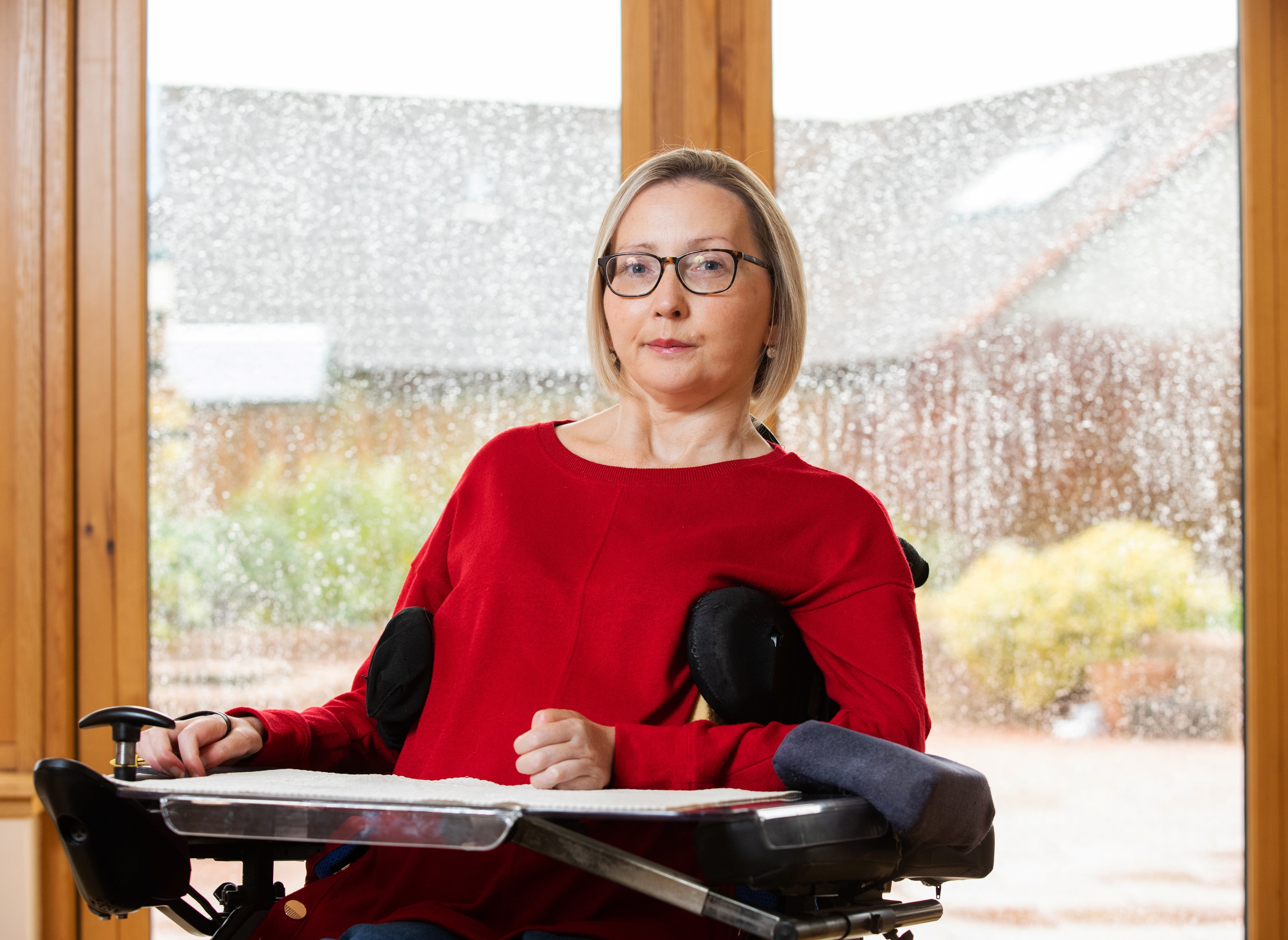Paralysed mother warns of ‘devastating consequences’ of drink-driving
Niki Smith was left in a wheelchair after accepting a lift home from someone who had been drinking.

Your support helps us to tell the story
From reproductive rights to climate change to Big Tech, The Independent is on the ground when the story is developing. Whether it's investigating the financials of Elon Musk's pro-Trump PAC or producing our latest documentary, 'The A Word', which shines a light on the American women fighting for reproductive rights, we know how important it is to parse out the facts from the messaging.
At such a critical moment in US history, we need reporters on the ground. Your donation allows us to keep sending journalists to speak to both sides of the story.
The Independent is trusted by Americans across the entire political spectrum. And unlike many other quality news outlets, we choose not to lock Americans out of our reporting and analysis with paywalls. We believe quality journalism should be available to everyone, paid for by those who can afford it.
Your support makes all the difference.A woman left paralysed after she accepted a lift home from a motorist who, unknown to her, had consumed alcohol, has spoken out about the “devastating consequences” of drink-driving.
Niki Smith, 48, from Aberdeenshire said that “small decision” had changed her life irreversibly.
The car she was travelling in was involved in a crash, leaving her needing a wheelchair.
Meanwhile, her sister, with whom she had been enjoying a night out, broke her collarbone in the incident, and later went on to be diagnosed with PTSD
We accepted a lift from someone we knew, although we had no idea he'd been drinking. It was a small decision that changed my life irreversibly
Ms Smith warned of the “devastating consequences drink-driving can have on so many lives”, as Police Scotland launched their annual festive crackdown on motorists who get behind the wheel after either consuming alcohol or taking drugs.
More than 20,000 drivers are stopped by the police in Scotland every month, and over the festive period the force is pledging it will have an “even stronger focus on drink-driving on Scotland’s roads”.
Ms Smith said she was speaking out to raise awareness of the impact drink-driving can have after being left paralysed in 1997.
She recalled: “It was a Friday evening and my sister and I were having a great night out. I enjoyed letting my hair down in between working as a carer and being a busy mum.
“We accepted a lift from someone we knew, although we had no idea he’d been drinking. It was a small decision that changed my life irreversibly.”
I hope that by sharing my own experience I can help raise awareness of the devastating consequences drink-driving can have on so many lives. I wouldn't want anyone to go through the same as me and my family
She added: “It must have been heart-breaking for my family and partner to be told I’d broken my neck and was paralysed.
“My sister, who was in the car with me, broke her collarbone and was later diagnosed with PTSD. I’m glad it was me, as I would have struggled to accept her having my injury.”
Since the crash she said she and her family had endured “years of stress, physical pain and frustration” but added that she has “now found ways to enjoy special moments and not just sit at home and dwell on the difficult times”.
“I’ve had to become a more confident person so people see me and not just the wheelchair,” she said.
“If I hadn’t had my kids I don’t think I’d be the person I am today.
“I hope that by sharing my own experience I can help raise awareness of the devastating consequences drink-driving can have on so many lives. I wouldn’t want anyone to go through the same as me and my family.”
In the last two months alone Police Scotland said 395 motorists have tested positive for drug-driving, with 600 arrested for drink-driving and related offences.
Chief Superintendent Louise Blakelock, the force’s head of road policing, said: “We want everyone to enjoy this festive season for all the right reasons and so we are urging motorists to help us keep the roads safe for all.
“We continue to see motorists put others at considerable risk by driving under the influence of alcohol or after taking drugs, despite repeated warnings about the dangers of drink or drug-driving.
“As we approach the festive season, our officers will be focused on targeting drivers who recklessly put others at risk by driving after consuming alcohol or drugs.
“Driving under the influence reduces reaction times and continues to be a factor in serious and fatal collisions. The fact you could kill or injure yourself or another member of the public should be reason enough not to risk it.”
She continued: “I am urging drivers to plan ahead this festive season, think how you’re getting home after drinking and consider the impact alcohol can still have the morning after.
“Please don’t drink or take drugs and drive, it’s not worth the risk. Do your part, and help keep our roads safe this festive season.”
If you’re having a drink, leave the car at home, and if you’re driving, the best approach is none
Transport Minister Graeme Dey echoed that message, saying: “The consequences of drink and drug-driving can be devastating and those found guilty of breaking the law could face a criminal record, a large fine, and up to six months in prison.
“Driving while under the influence puts not only the driver, but passengers and other road users at risk of serious injury, or even worse.
“Our message is clear: if you’re having a drink, leave the car at home, and if you’re driving, the best approach is none.”